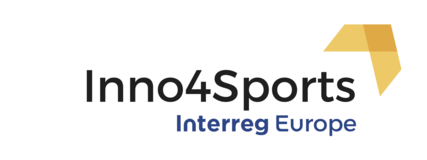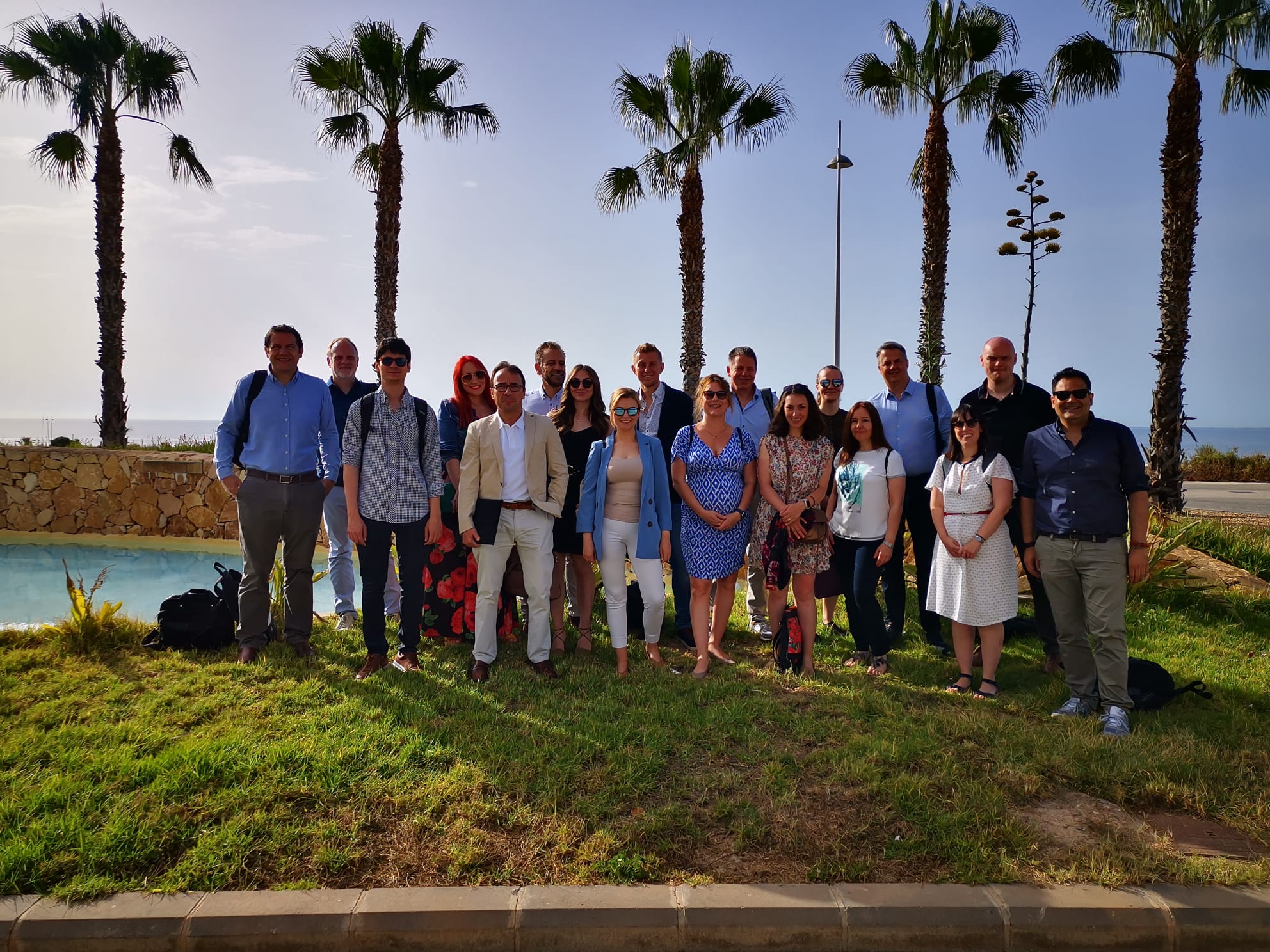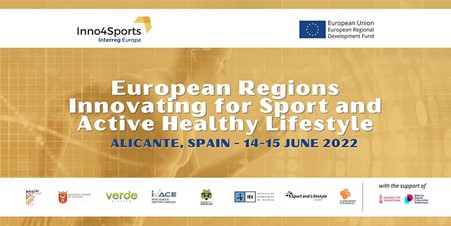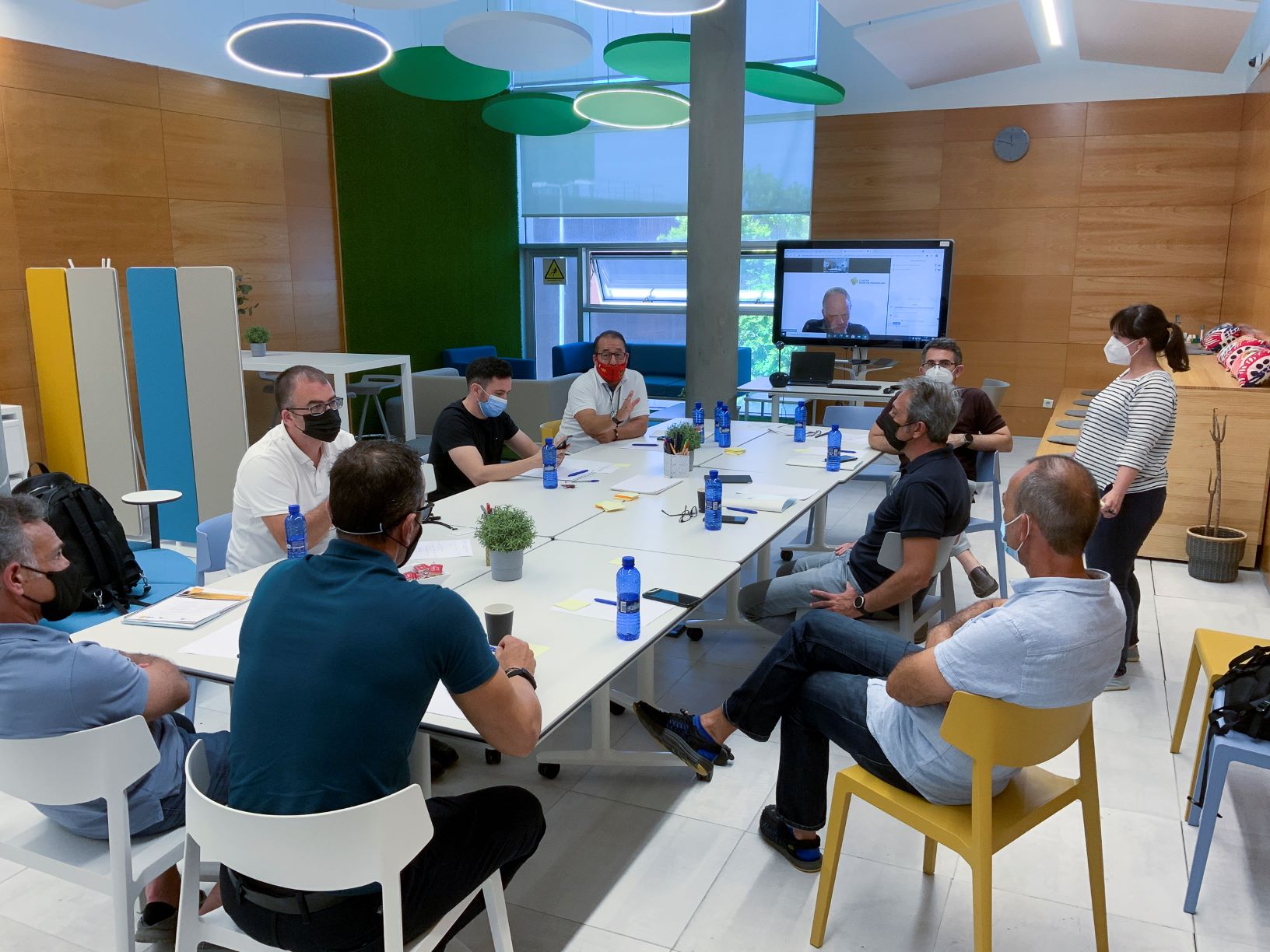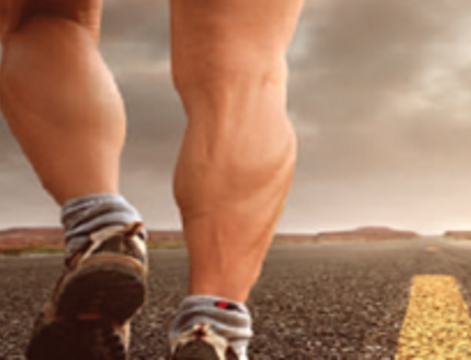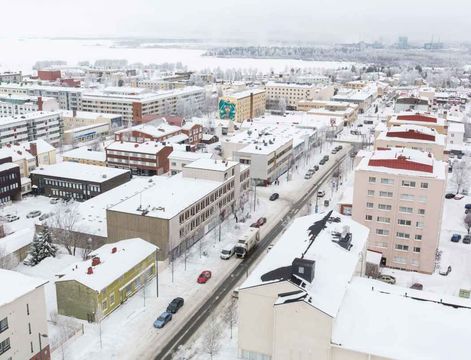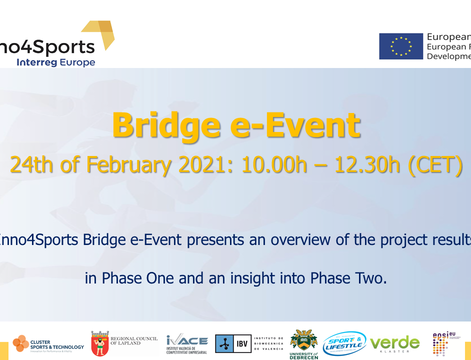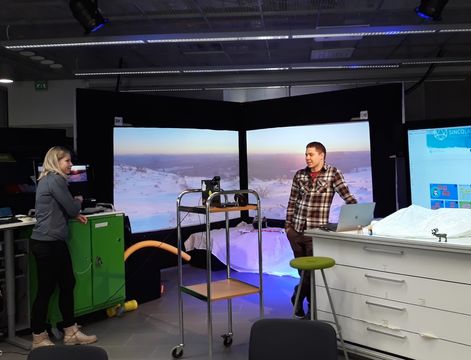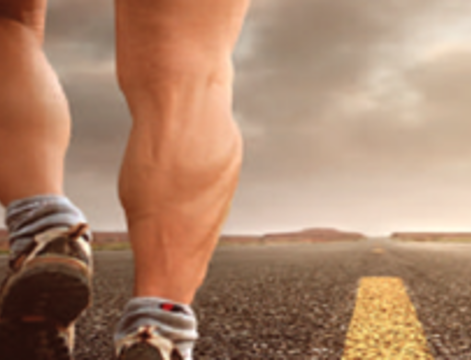The Inno4Sports project brings together five regions that all aim to improve the performance of innovation clusters around sport and vitality, that have emerged in these regions in the EU. In a new series we interview all the project partners about their goals, learnings and efforts to put sports and vitality on the map. In the third episode we talk with Enrique Alcantára of the Instituto de Biomecánica de Valencia from Spain.
Why did you decide to join the Inno4Sports project?
“Previously we’ve been members of ClusSport, which aims to strengthen the sport industries at the EU level. During that project we worked together with Sports & Technology and they approached us for the Inno4Sports project. We think this project is a good opportunity for us to not only learn from other European regions, but also show the regional authorities in Valencia what sport can do for a region. Sports is not embedded in our regional policy yet, even though it plays a role in many sectors like tourism and health. Inno4Sports was the right project at the right time for us, because it helps us show what role sports can play for society.”
How do you put sports on the map in the Valencian region?
“Thanks to our involvement in Inno4Sports and ClusSport we created a regional sports innovation system in Valencia. For the Inno4Sports study trip in March 2019 in Valencia we invited a lot of stakeholders to speak or attend the meeting. After this event we had momentum and things really started to change. The difficulty is that there are four different departments in Valencia working on sports policy. What we’re trying to do, is connect these departments. For example, we try to bring stakeholders from tourism and care together. All together we have a big network in different sectors, and we can make change happen.”
What did you learn so far in the Inno4Sports project?
“From the study trips and other (online) meetings with the partners we learned a lot. But there are three main learnings for us:
- During the study trip to Lapland The Regional Council of Lapland showed us how sustainable development is in the core of the activities for many businesses. These businesses use modern technology to ensure they preserve nature whilst making improvements to the area that are beneficial for tourism. Sports-tourism-sustainability was something new for us and a topic we have to focus on in the Valencian region. Lapland can serve as a good practice.
- In the Brainport region in the Netherlands sports is already quite well embedded in regional policy. Something like ‘The Vitality Living Lab-project’, in which authorities, businesses, universities and knowledge institutions move together for innovation for sports & vitality, is really impressive. How the Brainport region uses technology to improve the health of citizens and how different sectors work together to push innovation, is something we’re striving for in the Valencian region as well.
- During the study trip to the Brainport region we also learned how companies and authorities use big data and Artificial Intelligence. That possibly could be very interesting for us in the future. Big data is a big trend around the world. But first you have to show what’s the potential of big data in sports and health. With the good examples from the Brainport region we hope to start several pilots in Valencia to show the local authorities how we could efficiently use big data for sports.”
How can Inno4Sports help in reaching your goals?
“Because of the project we got in touch with organisations from different sectors. We’ve created an ecosystem and a wide group of stakeholders. That’s very valuable for us. Besides that, the partners in the project can be a big help in writing the action plan. Also, thanks to Inno4Sports we can start collaborations with the partners for pilots that are in line with our goals.”
What is the ultimate goal for IBV?
“At the moment sport is not a priority in regional policy. Our major goal is to change that. We would like sports to be one of the pillars of regional policy in Valencia for the years to come. On the short term our goal is to start new projects in the area of sport and innovation. At the moment it’s quite hard to get funding for these projects, so we’re trying to change that.”
Read the interviews with the other project partners:
